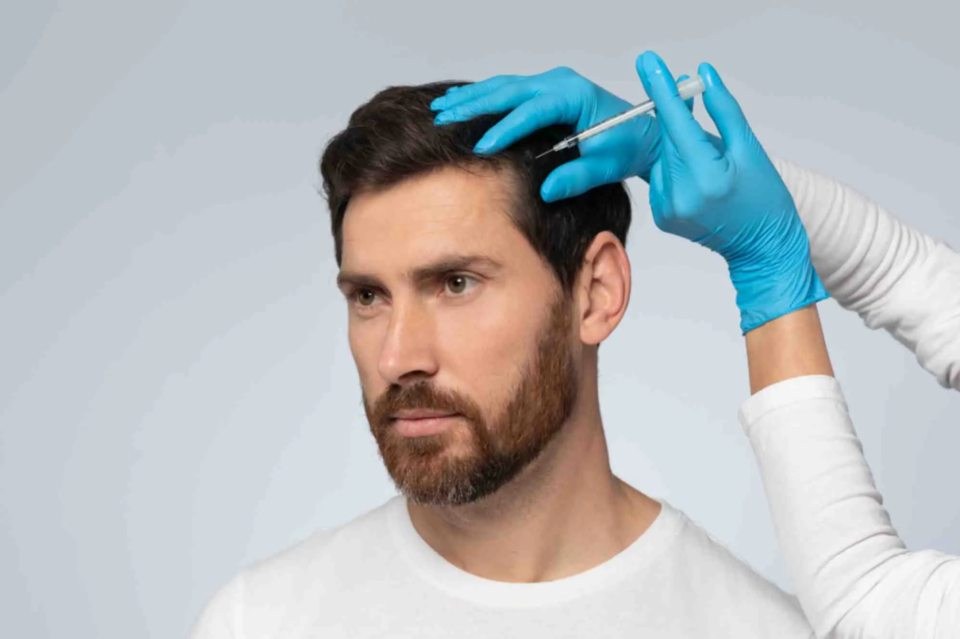
Hair loss is something many people face, and it can take a toll on both their appearance and self-esteem. Whether it's due to genetics, age, stress, or other factors, seeing a thinning hairline can be a source of frustration. But the big question remains: Can hair loss treatment really restore my hair? Let's dive into this question and explore what treatments exist, their effectiveness, and what options might work best for you.
Understanding Hair Loss:
Hair loss treatment in Dubai(علاج تساقط الشعرفي دبي), is a common issue that affects millions of people worldwide. The causes can be numerous and varied, ranging from hormonal imbalances to poor nutrition or even stress. Most people experience some degree of hair loss as they age, and genetics can play a huge role in whether hair loss occurs early or late in life. However, it’s important to note that not all hair loss is permanent. Understanding the cause behind your hair thinning is crucial in finding the right treatment.
The Role of Genetics in Hair Loss:
One of the most significant contributors to hair loss is genetics. Known as male-pattern baldness or female-pattern baldness, this condition tends to run in families and often leads to gradual hair thinning. If you have a family history of hair loss, there’s a higher likelihood that you may experience it as well. While genetics can’t be changed, understanding its role can help in exploring effective treatments that slow the process or prevent it from worsening.
Lifestyle Changes and Their Impact on Hair Health:
Often, hair loss is not just about genetics or aging. Lifestyle choices such as diet, stress, and even the use of certain hair care products can impact the health of your hair. Poor nutrition, particularly a lack of essential vitamins and minerals, can contribute to thinning hair. Stress, too, can disrupt the natural hair growth cycle, leading to hair shedding. Taking steps to improve your diet, manage stress, and avoid damaging hair practices can go a long way in supporting healthier hair growth.
Non-Surgical Hair Loss Treatments:
When it comes to addressing hair loss, there are a variety of non-surgical treatments available. These treatments are often the first line of defense and can help slow down hair loss and even stimulate new hair growth. Options like over-the-counter medications, topical solutions, and laser therapies have shown promise in improving hair density. Many individuals have found success with these methods, although results can vary from person to person.
Prescription Medications for Hair Growth:
In more severe cases of hair loss, prescription medications can be considered as a treatment option. The most well-known medication for hair loss is minoxidil, which is often applied topically to the scalp. It has been shown to promote hair regrowth and prevent further shedding. Another option is finasteride, an oral medication that works by reducing the hormone responsible for hair loss. Prescription treatments tend to yield more noticeable results but should be used under careful guidance to avoid side effects.
The Effectiveness of Hair Restoration Treatments:
When it comes to the effectiveness of hair loss treatments, results can vary widely. While some individuals experience significant regrowth with minimal effort, others may not see any noticeable improvements. The effectiveness often depends on the type of hair loss, how early the treatment begins, and the individual’s response to the treatment. Patience is key, as it can take several months to start seeing the results of many treatments.
For those who are exploring more advanced options, a combination of treatments might work best. For example, using medications alongside laser therapy or a healthy lifestyle may maximize the chances of success. However, not all treatments work the same for everyone, so finding the right approach for your specific situation is essential.
Final Thoughts on Hair Loss Treatment:
In conclusion, while hair loss treatment can certainly help slow or prevent further hair loss and even restore some of the lost hair, it’s important to set realistic expectations. For many people, results vary depending on the cause of the hair loss, the treatment method, and how early it’s addressed. Understanding the root cause and exploring various options is crucial. Can hair loss treatment really restore my hair? It’s possible, but it’s a journey that requires patience, consistency, and sometimes a bit of trial and error.
Whether you opt for medications, lifestyle changes, or non-surgical treatments, it’s clear that there are several approaches that can help manage hair loss and promote healthier hair. The key is finding the right combination of treatments that works for you.
In the end, hair loss treatments can have a positive effect, but it’s important to approach them with an open mind and realistic expectations to see the best results possible.













